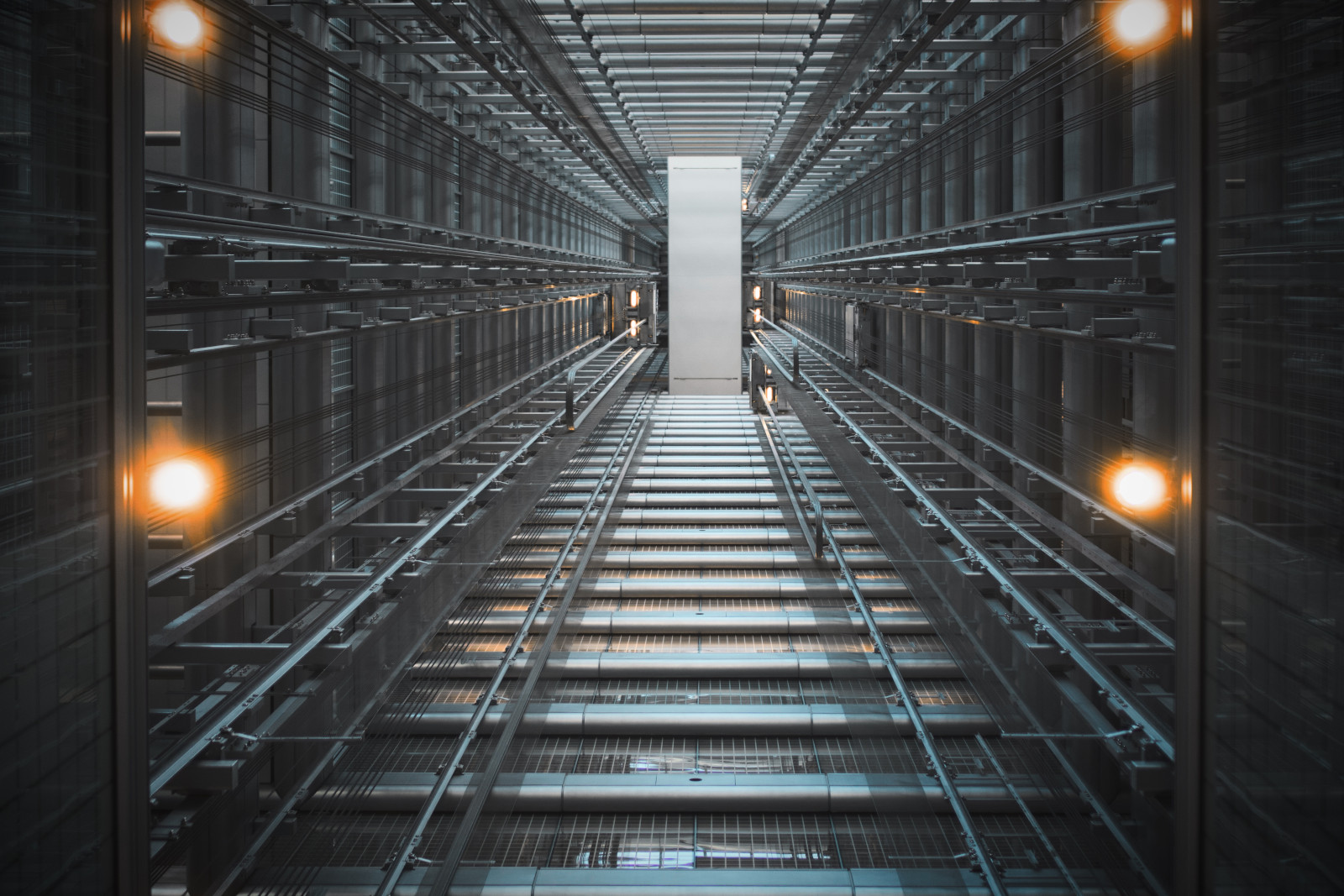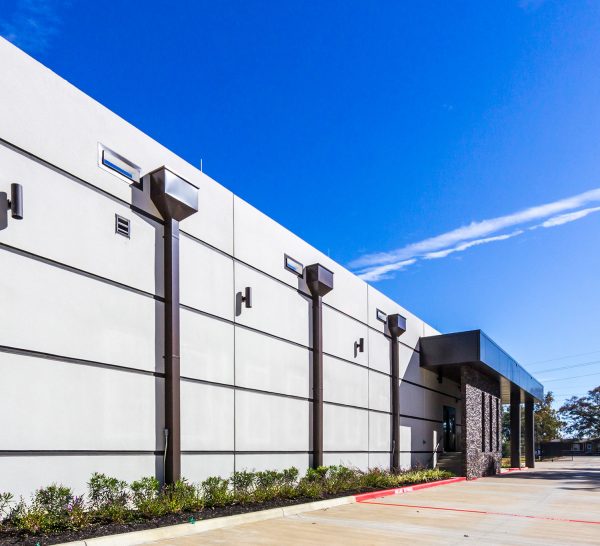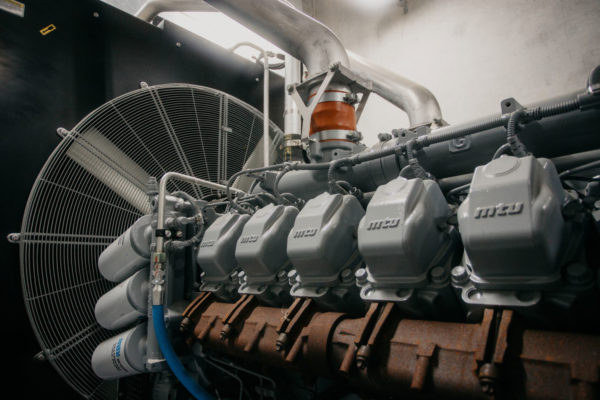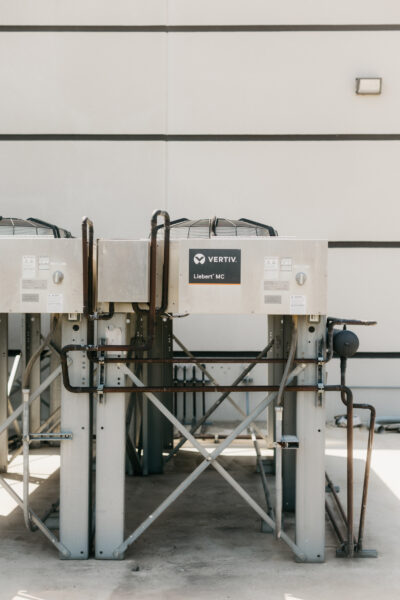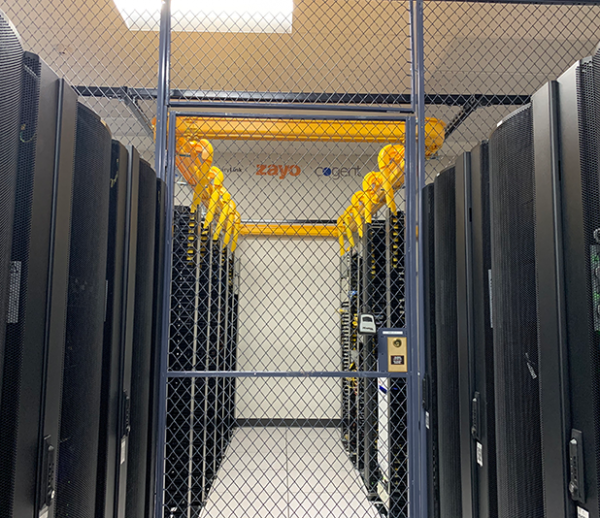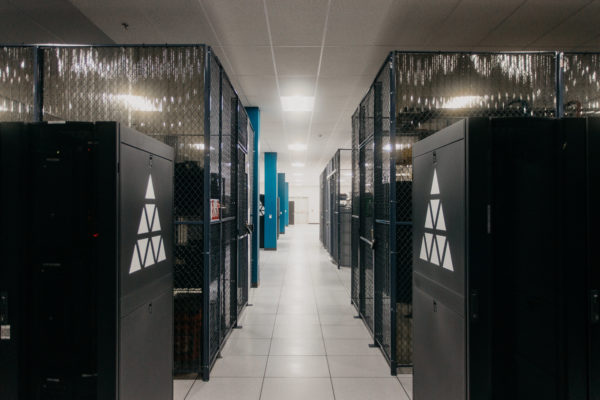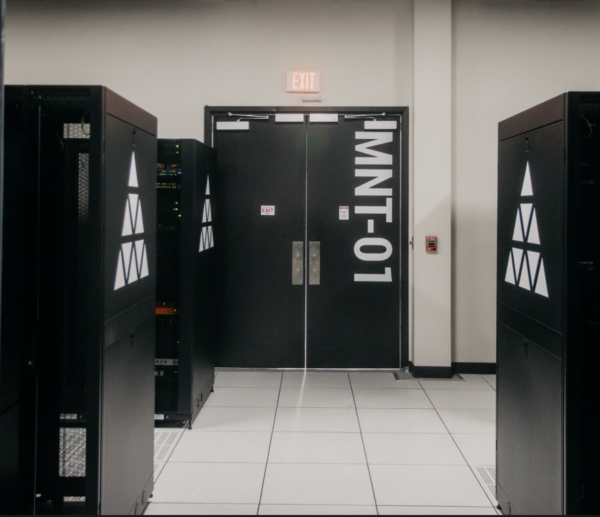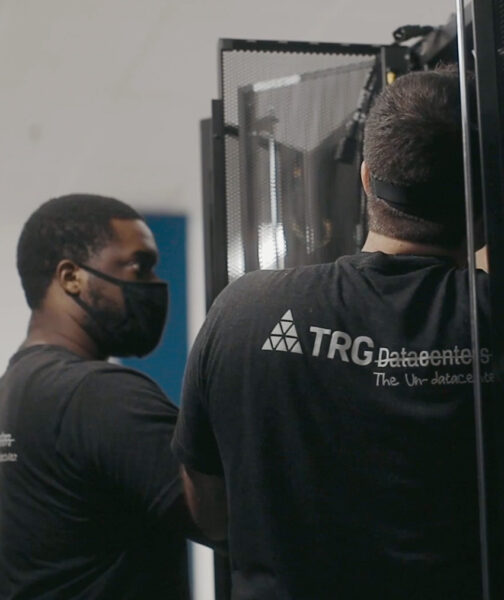Today’s businesses are increasingly reliant on technology. With a whole range of interconnected software, apps and communication platforms now controlling automated business processes for businesses of all sizes, technology is at the very heart of what we do.
While everything is running smoothly this provides incredible opportunities for businesses looking to expand beyond what would have been possible without technical innovation. But there is, of course, a downside to our reliance on tech. When a real disaster strikes, IT teams can be left powerless – and work may quickly grind to a halt.
Any interruption to service now comes at a significant cost to businesses. A survey published by Information Technology Intelligence Consulting (ITIC) estimated the cost of IT downtime at a minimum of $5,000 a minute. And many estimated the cost far higher. Of those surveyed, 44% put costs at $16,700 per server/per minute, or $1 million an hour.
Thankfully there are steps that companies can take to protect themselves from the dangers posed by disasters, and their cost implications, whether they’re affected by natural events like fires and floods, or cyber attacks designed to target a company’s IT systems.
A great disaster recovery plan is of course vital for any business, but even more so if a company would be left unable to operate should its systems go down unexpectedly.
For many companies, colocation at a disaster recovery data center is a big part of that disaster recovery plan.
Colocation’s role in disaster recovery
Disaster recovery colocation is designed to dramatically improve the resilience of IT systems no matter what happens.
Companies are now using colocation strategies for protection against a wide range of threats, from cyber security incidents to natural disasters and even new hazards brought about by climate change.
Combining fail-safe infrastructure along with robust power and networking options, colocation providers make sure businesses continue to run when they might otherwise have been forced to down tools.
Many colocation providers offer emergency offices, where teams can gather and resume work if their usual office becomes inaccessible. This is an increasingly popular option for companies that are often affected by natural disasters such as storms, hurricanes or flooding.
A colocation office space ensures that teams are still able to offer customers support and respond to queries efficiently, even if their usual office is out of bounds. Whether teams need to update customers on changes to their orders or planned deliveries, or simply reassure them that their orders won’t be affected, keeping communication channels open is a real advantage.
If teams are able to stay in touch with customers, clients and suppliers, confidence will remain high and no damage will be done to hard-earned reputations.
Why might a business need a colocation plan?
Disaster recovery should be a priority for all businesses, no matter how big or small the company is.
Cyber crime poses a real threat to small and medium sized enterprises, as well as much larger more complex organizations. With the threat of cyber attacks growing every year, this is something that no business can afford to ignore.
Organizations operating in areas that are particularly prone to extreme weather events have an added reason to consider disaster recovery, but the truth is that no company is completely immune to the threat of such a disaster, so it’s something that’s always worth planning for – no matter how unlikely it might seem!
Some companies choose to design their own disaster-resistant infrastructure, creating an additional facility where data can be housed securely, far away from their main data center. While this is a good option for businesses with significant resources at their disposal, it requires considerable investment, meaning it’s well out of reach for the vast majority of businesses.
However, companies that don’t have vast budgets available for disaster recovery can still benefit from a colocation strategy, by partnering with a reliable colocation provider.
How to choose a colocation provider
Choosing the right colocation provider for your business is no simple task. To get the most from your colocation, you’ll need a provider that can support your business, whatever future plans you have in mind. Ask yourself the following questions as you consider the providers you have in mind.
Will you have access to the best quality internet resources?
Think about the quality of internet resources the provider has, and decide whether that would support your business adequately. Ask for details on things like the internet network connection size and request network details.
Is the facility scalable?
Newly opened facilities tend to have scalability that older data centers might not be able to compete with. You’ll want to look out for things like super-fast connections to leading internet backbones and redundancy in the power supply. Factors like these will indicate how well the center could manage a significant increase in demand.
When discussing scalability, it’s also worth getting to grips with the potential costs that any increase in demand might incur. Look into how the facility structures its pricing for upgrades and check the costs of additional internet bandwidth.
What is the provider’s reputation like?
The reputation of a business remains a hugely important factor in determining its trustworthiness, and with good reason. Do your homework; make sure you know exactly how long the colocation provider has been operating, and how its reputation has fared over that time. Speak to businesses who currently use the provider if possible.
Are there hidden costs that you might not be aware of?
Some providers charge extra for things that others include as standard. Find out whether your chosen provider intends to charge for things like cross-connects and IP addresses.
Discuss power charges and make sure you know exactly what you’re going to be paying, and what that’s going to buy you. Providers that don’t charge for cross connects will make your life much easier (and don’t forget we include free cross connects as standard!).
How secure is the facility?
The security of data centers can vary quite significantly, so it’s always worth discussing security measures with any colocation provider you consider. Typical security measures include key card locks, biometric access at exits and entrances, access lists, locking cabinets and cages and digital surveillance cameras.
Is colocation the provider’s specialty?
Some data centers specialize in colocation, and this usually means that such facilities are well equipped to cater to the needs of businesses looking for such a service. Facilities offering collocation amongst a host of other services might not be such a good fit.
How does the provider ensure power is always running?
Redundancy is key. If you’re looking for a reliable colocation provider few things are as important as making sure that power is never interrupted. Look for providers offering a guaranteed power supply. Usually such data centers will have backup battery banks as well as generator-backed electrical power to ensure the power stays on in any eventuality.
Who currently uses the provider?
A good provider will be able to give you the names of some of its current customers. Look for recognisable names amongst its list, as this should give you an idea of the quality of service being offered.
Does the provider have other facilities?
Check whether the facility you’re looking at is standalone, or whether the same provider operates a number of similar facilities in different locations.
If your chosen provider offers global services, partnering with them could give you access to a number of different data centers which may provide valuable opportunities that you would not get from a single data center.
The benefits of colocation for disaster recovery
A colocation strategy provides a wealth of benefits for companies hoping to protect themselves from a wide range of different threats.
Take a look at some of the key advantages of including colocation in your disaster recovery plan to see how this option might save the day if disaster strikes your company.
Cost-effective
Colocation providers offer a cost-effective service, making it possible for smaller companies to take advantage of colocation.
At a colocation center, the costs involved in maintaining the facility and keeping it running smoothly are shared between a number of different businesses. With no one company footing the bill for the entire operation, costs are significantly reduced.
Experienced support staff
Dealing with an emerging disaster can be incredibly stressful, so it pays to have a team of qualified, experienced support staff on your side.
Available to offer advice and assistance no matter what challenges a business happens to be facing, colocation support teams can help keep operations running from day one of a disaster right through to the recovery process.
Colocation providers typically boast incredible amounts of knowledge when it comes to emerging trends and best practices in infrastructure maintenance and optimization. That alone can be invaluable for businesses looking to eliminate risk. By partnering with a colocation provider, businesses can start to tap into that knowledge and provide more proactive infrastructure management.
Strategic locations
Partnering with a colocation provider for disaster recovery gives a business access to strategic locations that it might never have had a base in otherwise. The use of such locations means that if a plug gets pulled at a company’s primary site, it will instantaneously be back up and running.
Colocation data centers can be synced for data continuity, linking with low-latency connectivity to the primary data center. Choose a data center a good distance from all major threats that might affect a primary site, bearing in mind that everything can be managed remotely if required.
Top level security
Security is always a huge concern in any disaster, whether it be a cyber attack or a natural event. With a colocation provider looking after valuable data and sensitive information, businesses no longer have to worry about the potential damage of data leaks and other attacks.
Data centers offer state-of-the-art security features, from 24-hour monitoring, firewall services and advanced threat detection to automated attack mitigation.
Redundancy
Third-party data centers have redundancy built in, and that’s how they’re able to guarantee uptime. Using a colocation provider as part of your disaster recovery plan means that you’ll be able to make use of a facility’s backup system, which is there to take on the load of a failed system without any interruption in power.
A number of different power feeds and connectivity types are used to ensure that the facility never has all its eggs in one basket, and that an alternative path is always available should any happen to fail.
Colocation data centers also often have good working relationships with providers who might be in high demand in an emergency, such as those supplying fuel and vital equipment.
Resilience
Colocation enables businesses to rapidly improve their resilience, giving teams the confidence to embark on ambitious expansion strategies without hesitation. This resilience is vital for companies hoping to strengthen their reputations, improve the services customers are offered and outsmart the competition.
Colocation providers can significantly reduce downtime by providing physical resilience and heightened security features.
Emergency office space
Physical office space might mean the difference between teams being able to keep your company running, and many services having to stop. If this could be the case for your company, it’s worth thinking about another benefit of colocation: emergency office space.
Many colocation providers include this as part of the package they offer. Emergency offices come fully equipped with desks, phone and internet connectivity and all the other equipment your teams will need.
At our data center, businesses have access to dedicated offices and conference facilities, along with spaces in which teams can relax and take well-earned breaks.
We also provide more dynamic hoteling offices that can be used throughout DR protocols, if businesses need to relocate key operational staff. So all the employees you need to be right in the heart of the action can manage and tap into the resources at their fingertips.
Learn More About Disaster Recovery Colocation
Collocation provides a number of great benefits for businesses hoping to limit the impact of a disaster and keep unplanned downtime to a minimum.
The cost-effective solution is ideal for businesses of all sizes, providing the enhanced security features and support that companies need to quickly improve their resilience to a wide range of different disasters.
Contact us to find out more about how colocation could help protect your company.
